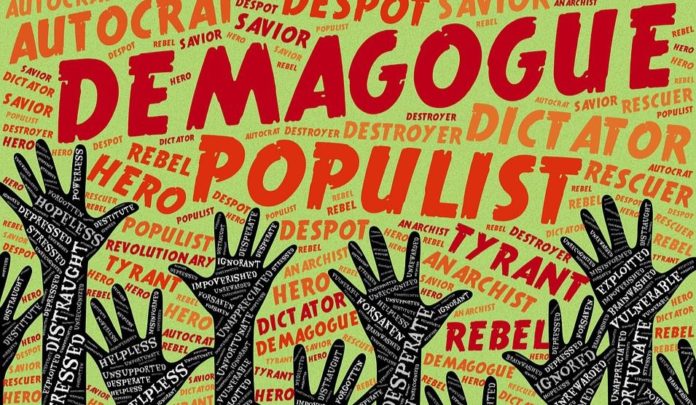(source: Alphonsian Academy Blog)
In the ever more abundant literature on the theme, there is a debate as to whether populism is an ideology. Various authors reject the use of this term to describe populism because, unlike liberalism or socialism, this political and social trend is not based on an articulated theory or doctrine. This difference certainly exists but in my view the ideological elements evident in populism are so strong that it may be considered an ideology, at least sui generis.
To argue this point let us take a working definition of an ideology and attempt to apply it to populism. An ideology can be understood as the use of certain IDEAS, in a REDUCTIVE manner, on the part of a GROUP, with its own INTERESTS, which finds expression in a PROJECT, often political in nature.
Applying this definition to populism we can easily identify all these elements. The two key ideas in question are “the people” and “sovereignty”… in fact populism can be understood as a particular way of understanding the relationship between the people and sovereignty. The reductive element involved in populism concerns the manner in which it takes a part of the people to be the people… the establishment, the élite or others who differ in opinion are not recognised as part of the people. The group in question are the political leaders and activists who promote this vision. Their interests may concern specific issues such as migration, but in general terms it consists in the pursuit of political power. The project is to govern, all the while denying that this party or movement is part of the establishment.
If this reasoning seems too abstract it is possible to concretize it by applying it not to the term “populism” but to a wide range of specific leaders and movements from Donald Trump to Pablo Iglesias and back. (Most populist movements tend to be on the political right, but there are exceptions to this rule). While the origins of populism can be traced back to the 19th century, it is quite remarkable how pervasive it has become on the world political level in the last decade. In two future posts I will attempt to explain why this is so and why it constitutes a major moral issue in that it tends to undermine democracy.
Fr. Martin McKeever, C.Ss.R.






